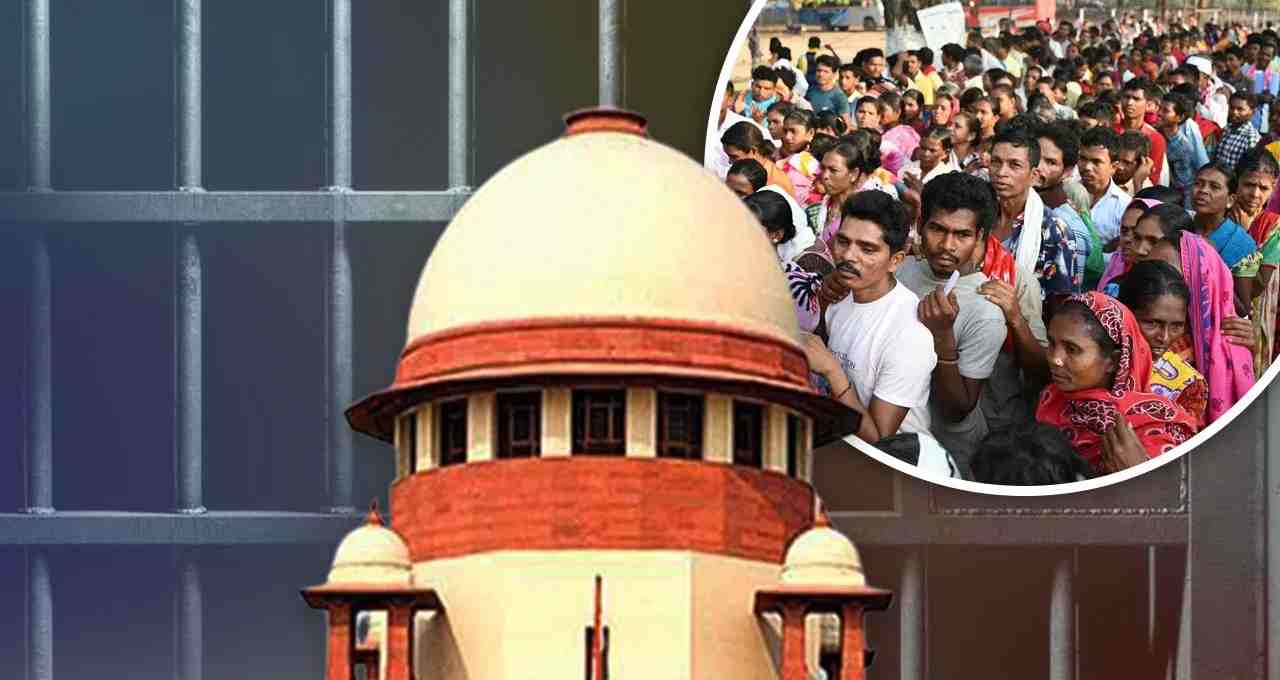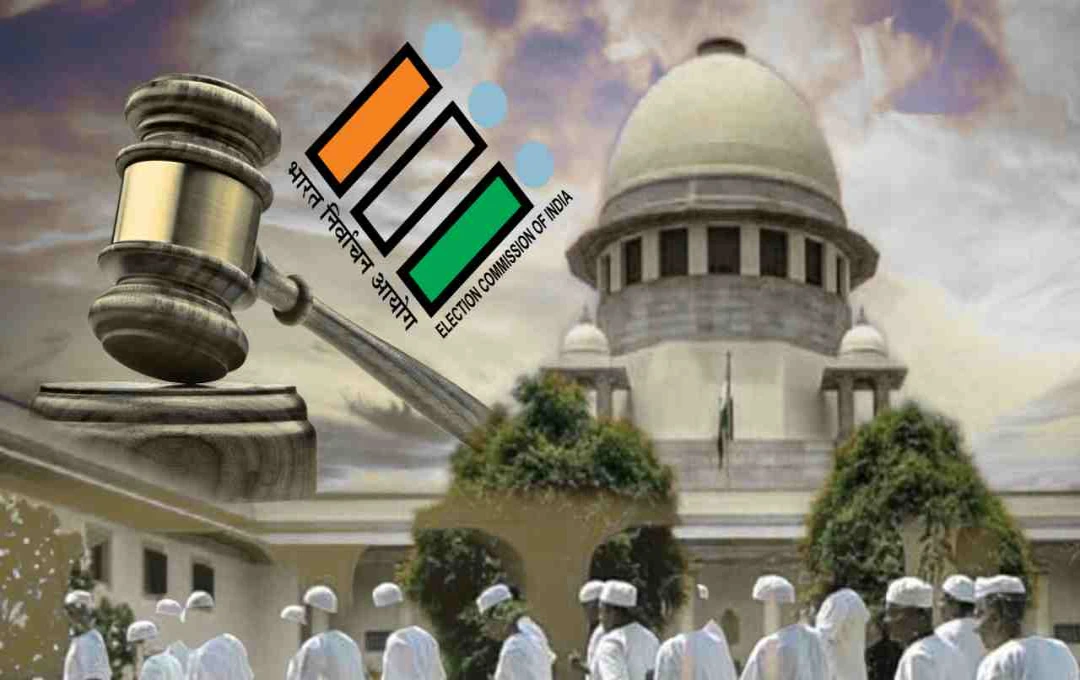During the hearing of a Public Interest Litigation (PIL) on Friday in the Supreme Court, the question arose whether approximately 4.5 lakh undertrial prisoners incarcerated in jails across the country should be granted the right to vote. The petition was argued in the Supreme Court by advocate Prashant Bhushan.
New Delhi: On Friday, the Supreme Court asked the Central government and the Election Commission whether approximately 4.5 lakh undertrial prisoners, who are incarcerated in jails across the country, should also be granted the right to vote. This question was raised during the hearing of a Public Interest Litigation (PIL). A bench led by CJI BR Gavai in the Supreme Court sought opinions from both parties on the matter.
Advocate Prashant Bhushan, arguing in favor of the Public Interest Litigation, cited international democratic norms and questioned how such an absolute ban could be imposed.
What is the case?
This Public Interest Litigation has been filed by Sunita Sharma, a resident of Patiala, Punjab. The petition states that denying the right to vote to prisoners who have not been proven guilty of any crime is a violation of democratic rights. The Central government and the Election Commission have been made respondents in the petition. The petitioner argues that Section 62(5) of the Indian Constitution and the Representation of the People Act, 1951, should only apply to convicted prisoners, while those who are merely undertrials or in preventive detention should not be deprived of their voting rights.

Supreme Court Hearing
A bench comprising Chief Justice B.R. Gavai and Justice K. Vinod Chandran heard this petition in the Supreme Court. Advocate Prashant Bhushan informed the court that a complete ban on the voting rights of undertrial prisoners violates international democratic norms. Bhushan stated,
'Convicted individuals are permitted to contest elections and can influence the law-making process. In such a scenario, it is not justifiable to deprive a common citizen, who has not even been convicted, of their voting rights.'
The court has issued notices to the Central government and the Election Commission in this matter, seeking their clear opinion and response on the subject. According to Section 62(5), a person confined in prison cannot vote, whether they are convicted or in police custody. However, if someone is held in preventive detention under the law, this rule does not apply to them.
The petitioner contends that this law unfairly restricts the right of undertrial prisoners to elect their public representatives. The Supreme Court will now examine how justifiable the provision of Section 62(5) is and whether granting voting rights to undertrial prisoners can be considered.










